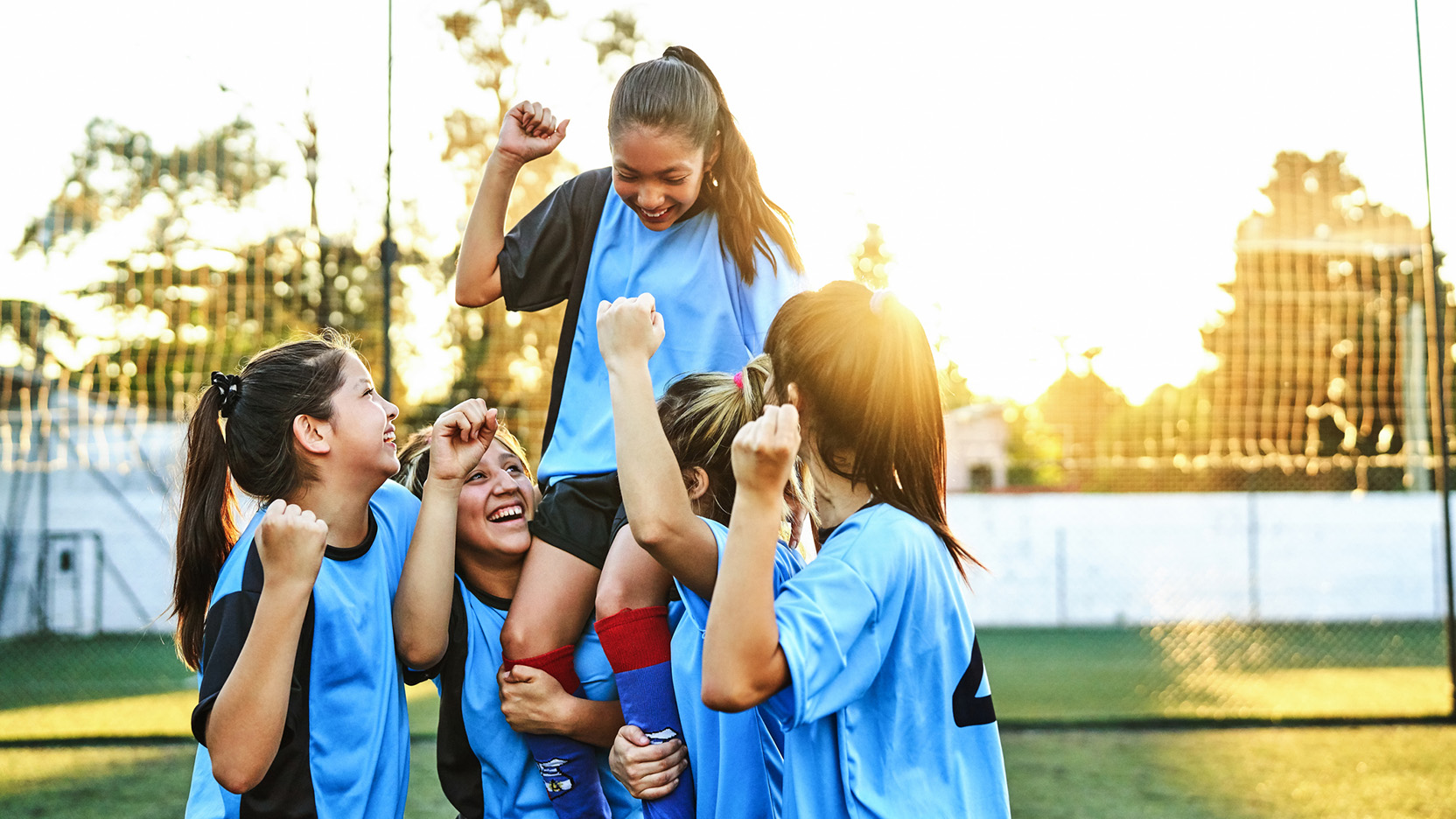The Power of Sports
Playing sports can help you stay in shape, teach you to organize your time, boost friendships and build relationships with adults and your peers. Through athletics, you gain skills that can best be acquired on a court, track or field.

Friendship
Playing sports enables you to create friendships you otherwise might not have found. Sports bring teens together from different schools, backgrounds and communities. Many times, the friendships you create on the field remain close even when you aren't playing sports.
Family
The fans on the sidelines are one of the most important parts of the game. The constant support of your parents helps you feel good about yourself and strengthens your connection to them.
As a teen, it's not always easy to find time to spend time with your parents. Sports can give you and your parents time to appreciate one another.
Coaches
By providing wisdom and encouragement, coaches can be very good role models. The relationship that you develop with your coach is very important to the success of the team.
Positive coaching helps to bring the team together, and gives players the right tools to push themselves academically and physically.
Health
Participating in sports improves your health in many ways. To be a good athlete, you must take care of yourself. This gets you thinking about what to eat and how to treat your body to achieve peak performance levels.
Sports Nutrition
When engaging in sports for the first time, you may feel hungrier than usual. This is normal, because your body is expending much more energy than it is used to. Here are some nutrition tips to help keep you healthy while you participate in sports.
- Eat fat. About 20 to 25% of energy comes from fats, so to keep energy levels high, your body needs you to consume fat.
- Make sure to eat before, during and after your sport. The helps maintain blood glucose levels, which in turn will help enhance your sports performance.
- Stay hydrated! When playing a sport, your body loses a lot of fluid, which can cause dehydration. This is dangerous – and potentially fatal – so drink plenty of water.
- Eat a balanced diet. An athlete's diet should include plenty of complex carbohydrates, proteins, vitamins, minerals and fats.
- Limit salt and simple sugar.
- Don't fast! Your body needs fuel to function.
School
It's a common misconception that being both a student and an athlete is hard, if not impossible. Participating in sports can actually have a positive impact on school.
Sports force you to organize your time so that you can both go to practice and finish your homework. The key is finding a balance. If you can learn to organize your time then you can succeed in both. Ask your teachers, coaches and parents for help if you need it.
Leadership Skills
Participating in sports helps build leadership skills. Sports teams give you an opportunity to surround yourself with competitive people and role models, and learn from them both. You can demonstrate your own leadership through team captainships and individual actions to improve your team's success.




